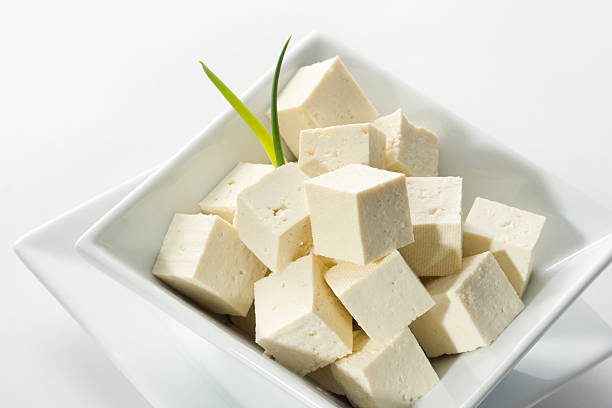
Tofu is a widely used protein derived from plants often eaten in vegetarian and vegan diets. There’s no reason why meat-eaters should not be enjoying it as well. There’s a lot of misinformation floating around regarding tofu and the dangers of eating foods made from soy and nourishment; we’re here today to set the facts straight! Is it healthy to eat tofu? Absolutely! This is the reason.
Tofu is produced by curdling soymilk using a coagulant such as calcium sulfate and pressing it like cheese. The quantity of liquid determines the tofu’s firmness squeezed out. Therefore, the most common tofu you can purchase at the supermarket include extra-firm, firm, silken, and soft.
The taste of tofu can be pretty bland, but the best part is that it soaks up the flavors you add (like fruits in smoothies, fruit in a smoothie, or the taste of a stir-fry with tofu). How well you’d like it to hold its shape determines the kind of tofu you select for your recipe. For instance, choose more firm or extra hard tofu when grilling and soft tofu for the scrambled egg made from tofu. Silken tofu is created with a different procedure, creating an ice cream-like product. This tofu is best cooked in pureed dishes like puddings and smoothies.
Tofu Nutrition Information
The different types of tofu differ in their nutritional content, with tofu that is firmer and more high in unsaturated fats and protein than other types. To ensure that tofu is rich in calcium, read the label to confirm that it’s manufactured using calcium sulfur (which strengthens tofu by adding calcium). Four portions of firm tofu offer 140 calories, 13 grams of protein 6, 6 grams of fat, 1 gram of saturated fat, 120 milligrams of calcium, and 8 milligrams of iron. Tofu is also devoid of cholesterol, extremely low in sodium, and a great source of B vitamins in a variety of.
Major Myths About Tofu to Stop Believing
Various soy myths might have made you question the benefits of eating tofu. Find out about the two most common soy myths and why you shouldn’t be a believer and incorporate tofu into your diet program.
Myth #1: Soy foods could have the effect of having a “feminizing effect.”
Soy is an excellent source of isoflavones (or phytoestrogens) that incorrectly made many believe it causes feminization. However, a 2009 article in a magazine for men raised the issue by citing an incident that was reported about an older gentleman who had female-specific effects (like the loss of sexual drive and Erectile dysfunction) and connected the issue to soy.
The article didn’t mention that the aging man consumed 3 quarts worth of soymilk daily! The amount was 8 to 9 times more than the amount commonly consumed by older Japanese men, which is not a factor that should form the basis for research about soy. Furthermore, a research meta-analysis published in 2010 found no significant impact of isoflavone or protein from soy consumption on testosterone levels, sex hormone binding globulin and free testosterone, and the free androgen index. Numerous subsequent studies have also disproved the relationship between eating soy and the growth of breasts or any other feminine characteristics.
Myth #2: Consuming soy may lead to cancer.
Several animal studies conducted in the 1990s led some to believe that eating soy could cause breast cancer. The false belief that phytoestrogens have the same effect as estrogen was widely circulated in the media and on the Internet, propagating this myth. However, there’s plenty of research to disprove the idea that soy causes tumors in the breast; in fact, some research suggests that soy might provide protection. For instance, Asian observational studies show soy consumption is linked to about one-third less chance of developing breast cancer.


